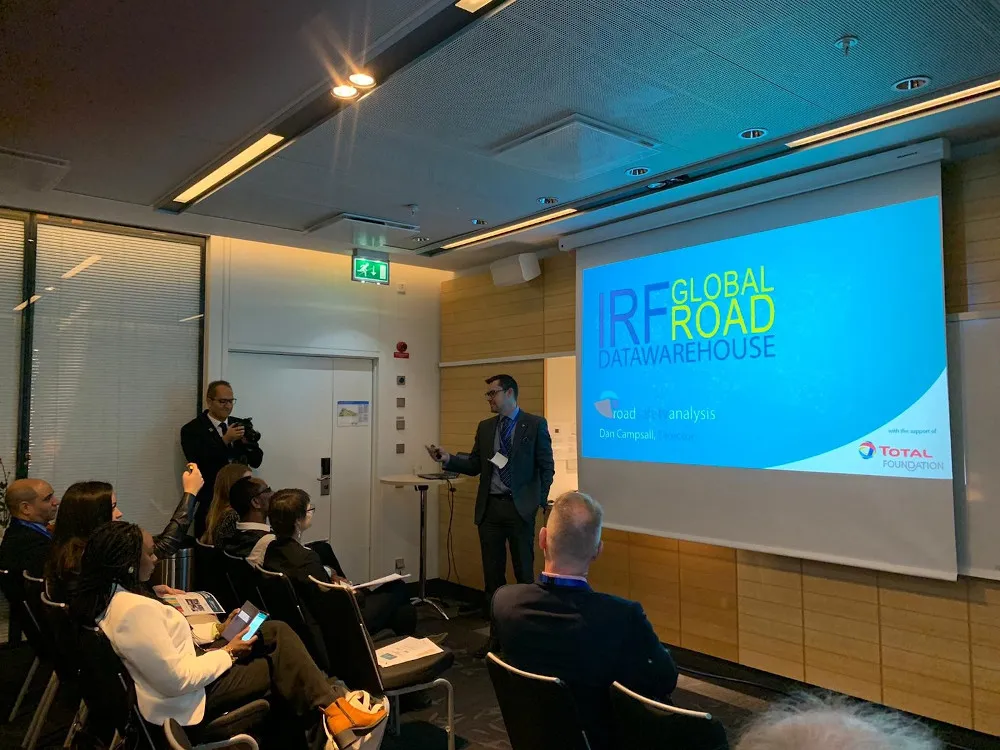
Members of the consortium of the EU-funded SaferAfrica project met in Athens on 24-27 April 2018 to discuss advancements and to present first results to the management board.
The SaferAfrica Project aims to establish a Dialogue Platform between Africa and Europe focused on road safety and traffic management issues. The primary role of the dialogue platform is to act as a high-level and high-powered body that can help positively influence changes in the African regions.
The platform works at two different levels: high-level via the management board made-up of prominent institutions like the European Commission, International Financial Institutions, UN Regional Commissions and other relevant stakeholders. The technical level which involves government and research institutions, international organisations and transport stakeholders (such as NGOs), with a balance between African and EU partners.
The project activities are oriented to the “Safe System” approach and grouped around four pillars: Road Safety Knowledge and Data; Road Safety and Traffic management Capacity Review; Capacity Building and Training; Sharing of Good Practices. These have been specifically identified to be aligned with the mid-term review of the African Road Safety Action Plan.
SaferAfrica aims at:
- Contributing to developing/designing actions related to the Action Plan (and, in particular, to its mid-term review) together with individual African countries/organisations.
- Assessing progress toward the goals of the Action Plan and, based on assessments of the solutions adopted by various countries, releasing recommendations.
- Increasing the endogenous capacities of African countries.
- Fostering the adoption of the principles of the Safe System approach, in which all elements of the road transport system are defined in an integrated way, with the aim of ensuring crash energy levels below what would cause fatal or serious injury.
IRF (Geneva), the Tanzania Roads Association (TARA), Tanzania Transportation Technology Transfer (TanT2) Centre and TANROADS are pleased to join hands and to present the International Course on Road Safety Engineering and Audits which will take place at Julius Nyerere International Convention Centre, Dar es Salaam, Tanzania from 23 to 27 July 2018.
This five-day course comprises a wide range of lectures, workshops and an intensive practical hands-on training delivered by experts of international reputation. The course provides participants with practical information on how to conduct a road safety audit. Participants learn how to improve transportation safety by applying a proactive approach that includes examination of a future or existing road. Participants will have the opportunity to work in teams to investigate and analyse a real-life case study and design an appropriate remedial programme.
Upon completion of the course, participants will be able to:
• Review the Road Safety Situation in their Respective Countries;
• Discuss Road Safety Audit (RSA) Concepts;
• Identify and Explain Steps for Conducting RSA;
• Perform RSA as a Member of a Team;
• Explain the Way Forward in Addressing RSA Related
Issues in their Areas of Jurisdiction
Delegates completing this course will receive a Continuous Professional Development (CPD) Certificate of Attendance, recognised by the Engineers Registration Board of Tanzania.
For further information and registration, please contact the TARA Secretariat at: [email protected] or contact our IRF secretariat at: [email protected]The meeting in Athens was also the opportunity to discuss SaferAfrica’s work for the development of a Pan-African Road Safety Data and Knowledge Centre, effectively working as a Road Safety Observatory. The aim is to support policymakers and stakeholders with evidence of critical risk factors and identification of related actions and good practices on the basis of high-quality data and knowledge. The Observatory is based on international experiences such as the European Road Safety Observatory (ERSO) and calibrated on the specific needs of African stakeholders and sub-regions, as well as to specific road safety problems. Starting from a detailed collection and assessment of existing data in African countries, the Road Safety Observatory is committed to conduct a large-scale survey to be distributed to national and international road safety authorities and organisations, with a view to collect road safety data, namely: collection systems and basic definitions; fatality data; exposure data; and safety performance data.
An analysis system will be put in place to estimate usable indicators, develop an evidence base for the problems at stake, map the critical areas and challenges in every African region and identify risk factors. The Road Safety Observatory web-based portal will be soon accessible. Knowledge and management tools, such as statistics, reports, fact sheets, knowledge resources and links are at stakeholder disposal through the portal.







